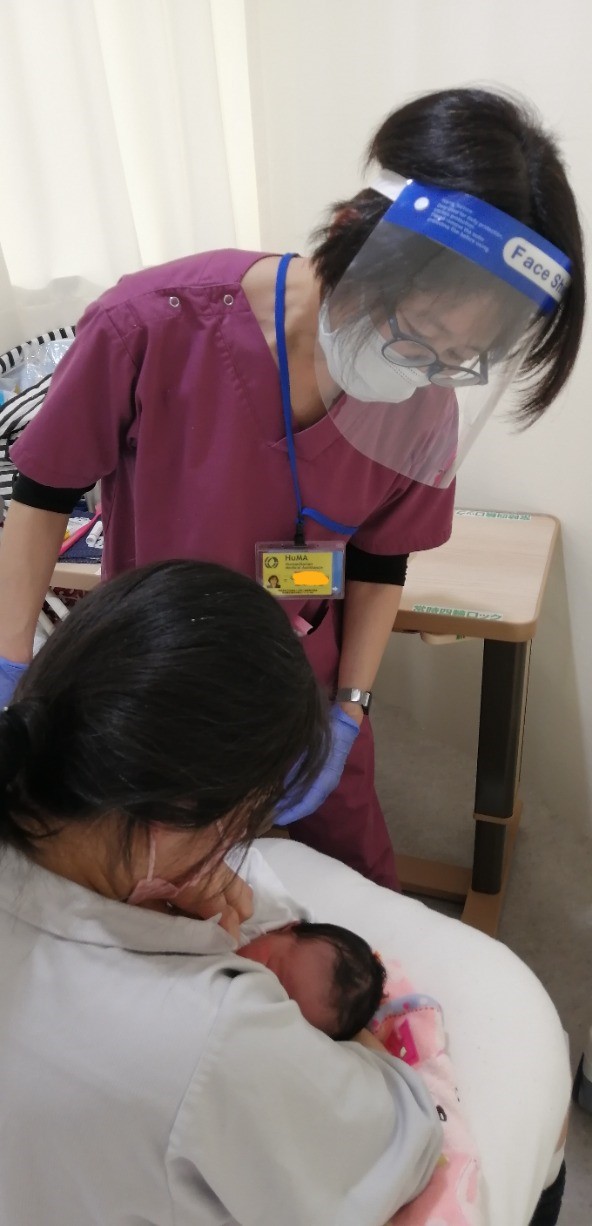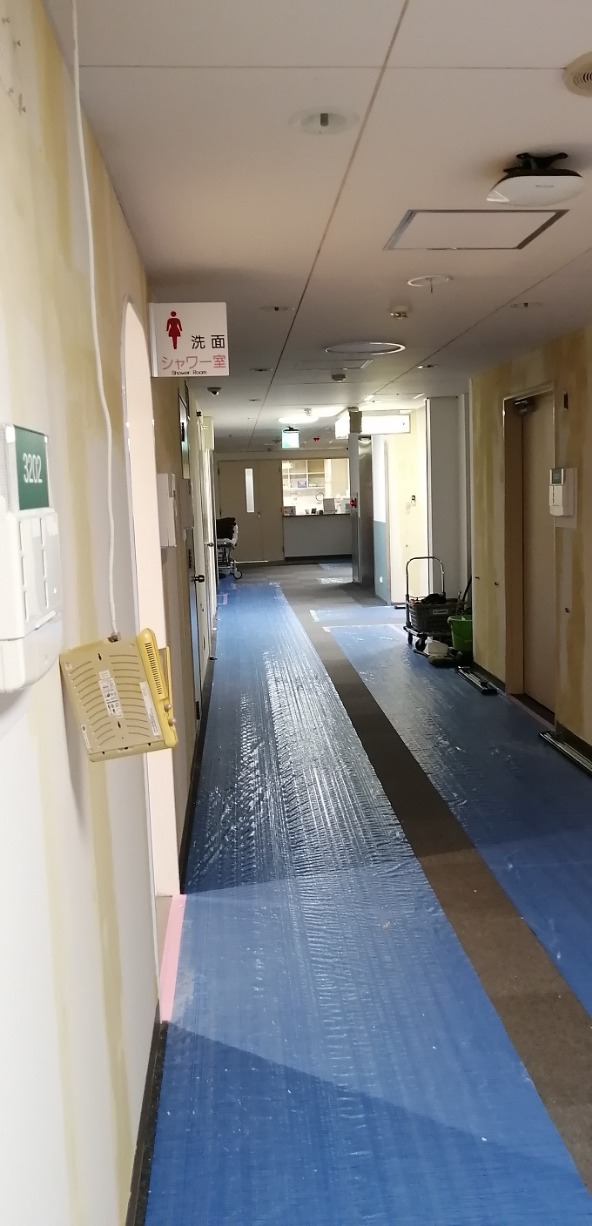A number of HuMA nurses and midwives have been dispatched to Keiju Medical Center in Nanao city. We have compiled various reports from the dispatchers.
Due to the earthquake that occurred in January, the hospital is still undergoing major repairs to cracked walls and leaking ceilings, and the obstetrics department is currently borrowing space in the back of the endoscopy area.
On weekdays, many day patients come and go for endoscopic examinations, which makes us realize how difficult it is to work with different flow lines, such as getting hot water for bathing babies from the sink in the endoscopy area. We feel that a lot of hard work and ingenuity, such as using different areas as wards and delivery rooms, and organizing and arranging items, are connected to safe deliveries and protecting the lives of mothers and babies.
In addition, the staff’s guidance on bathing and discharge is based on the fact that there are still many families with water outages, making us realize that the usual norm is not the norm. Knowing how exactly to proceed with childcare in a disaster-stricken situation will help patients feel less anxious.
Usually, during the day shift, the babies’ vitals are checked, minolta measurements are taken, and they are bathed. Currently, while bathing is also done in a temporary bathing tub the size of a kitchen drain tub, all of the babies look very comfortable and quietly bathe. However, when the babies get out of the tub, they cry with full of energy, saying they are hungry.
Once the ward is settled, we begin to support the newborns in breastfeeding. After a few hands-on explanations, both mom and baby quickly get the hang of it. In particular, once the mothers get the hang of positioning, the babies get better and better at it. We are always impressed by the power of babies.

We also take care of the baby at night. If mothers are not anemic but show signs of fatigue, they will get a good night’s rest. Babies are energetic, crying because they are hungry, crying because they drink and defecate, crying because their bottoms are uncomfortable, crying because they are hungry when we change their diapers. But as soon as we hold them and rock them snugly against our bodies, they fall asleep.
We hold the baby as we talk to babies, saying, “It’s only been a few days since you came outside,” and “You must miss your mother’s warmth.” We are soothed by the baby’s unchanging condition under all circumstances. Thank you for being born healthy, and congratulations on the birth, also remain the same under any circumstances, but in times like these, we feel that it is even more precious and happy that both mother and child are healthy. It is a relief when the morning arrives without any emergencies. The mother, who had been pale, was now able to sleep, and her color and expression had improved. She is also relieved that the water cutoff at her home is no longer a concern. We are relieved that the problems are being resolved one by one.
We were given a tour of the maternity ward, which is currently out of use. Unlike the stylish new ward, which is now a temporary residence, the LDR (room for labor, delivery, and postpartum recovery. After the earthquake, the operating room is currently in temporary use) had a different history and warmth. . We sincerely hope that by the time the cherry blossoms bloom, the room will once again be lively with the sounds of childbirth.

Whenever we have a change of dispatchers, the hospital staff always thank us with excessive words of gratitude and thank-you notes. “When you come and cheer us on, it makes us smile, it makes us all want to do our best.” “You inspire us all, thank you.” We receive such words from them, and we can finish our dispatch with a warm feeling.
Since the disaster, HuMA members have been working to share information in advance to reduce the burden on on-site staff caused by the arrival and departure of unfamiliar dispatchers. We will continue to ensure that the information is passed on to the next dispatcher for better care.

